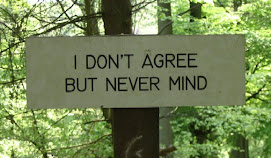. . . Was the question posed on an advanced driving forum.
My reply:
OK, 'concentration'.
Weird thing, concentration. It's something we do but have sometimes little control over.
In a way, it's rather like large, pink, dancing elephants.
Huh?
Well, you've probably just had a brief image of something like a Disney elephant - whether you wanted it or not!
So your attention is back on me now? OK, try to imagine that while I'm explaining 'concentration', that pink, tu-tu'd elephant has just danced behind my back. You'd have watched that, no matter how interesting my concept of 'concentration' is to you.
So what if we really try, really want to concentrate? We can direct our concentration. Keith Code (US bike instructor and author) has the concept of 'your $10 of concentration', which is your total budget, and you have to spend wisely - at any time you can't 'spend' more.
In driving terms, this means that as a novice you start off spending most of your $10 on the 'mechanical' aspects of driving, things like finding the clutch biting point - but it leaves little concentration for what's happening around you.
So you have to develop those 'mechanical' skills so they become more 'automatic' and 'fluid', to allow you time to look and plan ahead.
And from that looking and planning comes smoother driving.
But it's not as easy as that.
You still need to direct your attention.
A video:
http://www.youtube.com/watch?v=bVtQ4NN5_-Q
That's attention being directed at a very high level!
Can we all do that?
Well, 'yes' - it's easy, isn't it?
But is it?
How much of the information around us do we really take notice of - and do we allow ourselves to be distracted.
Here's an exercise:
Next time you're driving, look at the road signs . . .
[audience]
mumble mumble "We already do that, burk, what's he think he's talking about???" mumble mutter
[/]
. . . and yell out the meanings.
Point at them too, if it's OK to take your hand off the wheel.
You'll find that, even on a 'well-known' bit of road, you'll suddenly 'see' and understand signs you've ignored before.
Speaking, even pointing, makes the passive act of 'looking' into a multi-sensory activity - so far more difficult to ignore.
If you've just yelled "Stop!" when pointing at a stop sign, you'd be the burk if you ignored it!
.
Wednesday, 8 April 2009
Subscribe to:
Post Comments (Atom)





No comments:
Post a Comment